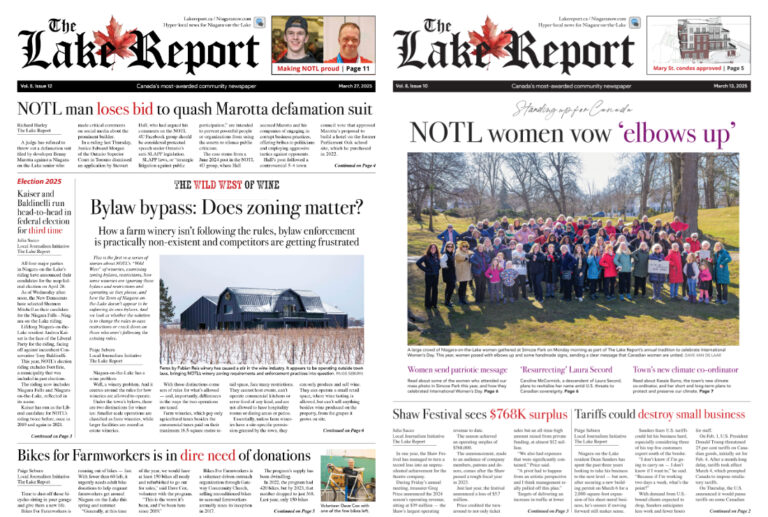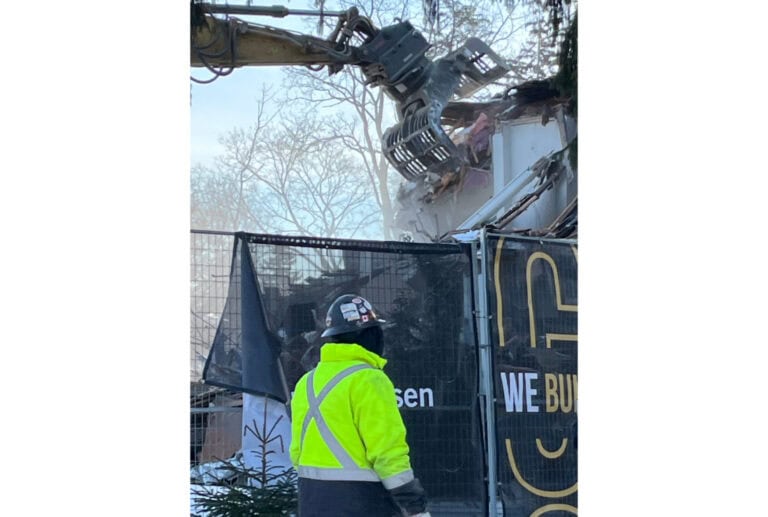Steve McGuinness
Special to Niagara Now/The Lake Report
The town’s budget office recently unveiled its initial 2026 base budget proposal, which must be finalized by Dec. 3. Councillors have until Nov. 17 to propose amendments.
This new budget process is more compressed and accelerated than in prior years. This change was imposed on May 1 when the province conferred strong mayor powers on our town without voter consent. It consolidates and vests power in a small cabal of town treasury staff, plus the CAO, lord mayor and deputy lord mayor.
Last week, in the article “Town aims to keep 2026 tax hike low at 1.81 per cent,” Lord Mayor Gary Zalepa, while expressing a preference for governing collaboratively, refused to rule out using his veto power. His comments are puzzling.
There will be a full open council meeting where any proposed amendments will be voted up or down on a simple majority basis. The one-on-one backroom meetings he proposed with councillors are unnecessary.
We will know with certainty whether council consensus in favour of any amendments coalesces before the eight-day mayor veto period begins. Amendments would only be open to veto if they pass council on a greater than 50 per cent basis.
The base budget is flawed in many respects. First, it fails to bring spending levels back into line with general price inflation and fails to generate sufficient new revenues to balance against a seven per cent expense hike.
Second, one-time reserve releases from surplus are used to artificially reduce the property tax increase down to 1.81 per cent. This creative financial engineering is manipulative and unsustainable beyond the upcoming election year.
Are incumbent councillors supporting this sleight of hand to enhance their re-election chances, gambling on our gullibility, to buy votes?
Third, the rate of increase in the current operating account transfer to the capital account is shrinking, relative to prior years. For the first three years of this term, council claimed to have inherited an infrastructure deficit necessitating steep tax hikes.
But these hefty increases have, in fact, proven unnecessary. We’ve actually experienced favourable unbudgeted non-tax revenues to pad our surplus.
So, suddenly, the budget office is now dramatically reversing course, raiding that surplus to minimize this year’s tax increase.
Municipal accommodation tax (MAT) revenues (the room taxes paid by tourists) are still not being optimized to fund capital improvements. They could alternatively, for example, seed construction of an indoor pool. There is also room to hike our four per cent MAT rate upwards toward the Toronto rate (temporarily hiked from six to 8.5 per cent). Finally, there’s our fair share of new municipal infrastructure funding commitments announced in last week’s federal budget, which are unbudgeted.
Fourth, the budget squanders an opportunity to generate additional planning application fees by unlocking full-cost recovery pricing.
Instead of meeting this Planning Act requirement full on, council hedges by capping the increases at averages charged in surrounding municipalities. This cap, ostensibly to enhance competitiveness, should be lifted.
Otherwise, taxpayers will continue to subsidize planning department costs that are more appropriately passed through to the wealthy developers consuming these town services.
Shockingly, our planning application fees have not been increased in the last 20 years. That massive loss is unrecoverable now. But we can at least recover full costs going forward.
A motion to move in that direction failed to move forward at council after chief administrative officer Nick Ruller advised that staff needed a 90-day time extension to revise the fee recommendations upwards.
Lord Mayor Zalepa has also blamed the previous council for the extra legal fees and lawsuit settlement costs flowing from their prudent decisions to constrain development. It’s doubtful those extra expenses were included in the cost base the town consultant proposes charging back.
Developers make site acquisition and building location decisions based on balanced considerations. The differences in planning application fees across municipalities are not a material motivating factor.
Commercial developers want to build here in NOTL to capture a larger consumer market base, compromising both tourists and residents. That’s why the Niagara Outlets mall, our biggest taxpayer, is here. Most surrounding municipalities cannot match NOTL’s three million tourists a year competitive advantage.
I hope this isn’t NOTL’s final budget answer. It can and should be improved.
In his Bay Street career, Steve McGuinness was a senior advisor to large financial institutions and is now retired in NOTL. Send your personal financial planning questions to him at smcgfinplan@gmail.com.










